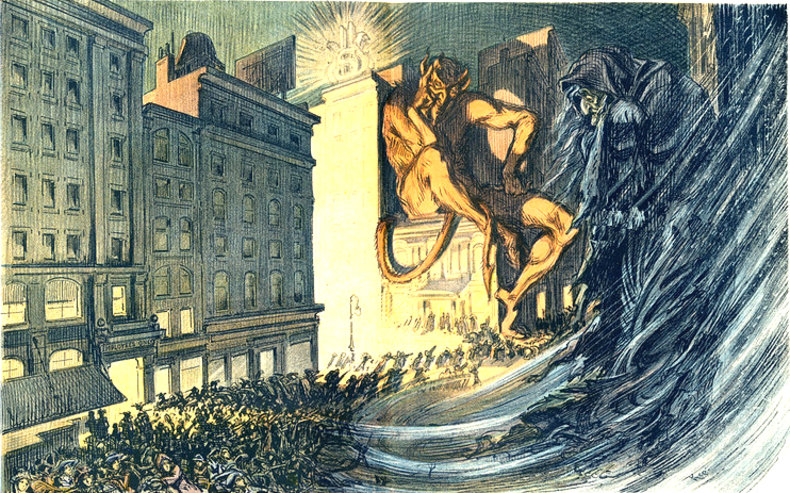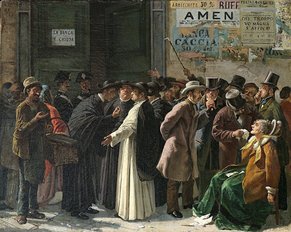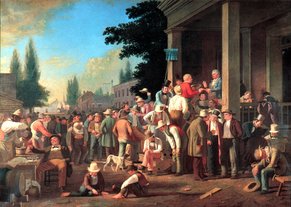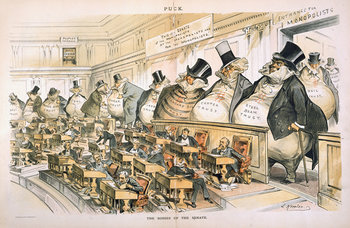
Color of Law
Crony capitalism may use a technique known as color of law whereby an action that contravenes the law has some superficial appearance of being legal. For example, a politician who awards a large government contract to an associate with a formal procurement process that appears to be legal except that the politician has influenced the process from the inside.Enforcement
Selective enforcement of laws and regulations. For example, a large firm with political connections that freely ignores environmental, labor or consumer safety laws without any threat of government enforcement.Coercive Monopoly
A government that doesn't regulate or break up a monopoly that aggressively engages in anti-competitive practices because politicians benefit from their relationship with the monopoly.Laws & Regulations
Laws and regulations that are crafted by a firm or industry that benefit these firms as opposed to society. For example, a law that reduces the liability of an industry or firm that harms consumers.Barriers to Entry
Large firms may benefit from complex regulations that make it difficult for smaller firms to enter their market. In some cases, crony capitalism may use excessive red tape to preserve the dominance of firms with a close relationship with the government.Tax Breaks
Tax structures, rules, interpretations or benefits based on the interests of a small elite as opposed to those of society. For example, large firms that lobby for rules that allow them to pay few taxes with structures that reroute revenue to low tax jurisdictions.Government Spending
In some cases, entire government spending programs are designed to enrich friends of the government. For example, a government with close ties to the construction industry that is constantly building infrastructure that makes little economic sense.Procurement
Governments spend a considerable percentage of the world's GDP each year such that government contracts are a significant type of wealth distribution. If this process is influenced by the political class for personal gain, this is cronyism.Grants
Directly granting funds to a firm. For example, a grant to a biotechnology company to do some research. In principle, grants should be awarded with a competitive process but this can be subverted or ignored by the political class.Credit
Government extension of credit to firms can be a form of rent seeking and cronyism. For example, a government that buys the bonds of a firm that would otherwise go bankrupt out of a motivation to help friends as opposed to society.Sale of Assets
The sale of government assets to friends. For example, a politician who orchestrates the sale of public water infrastructure to their in-laws. This may represent a discount to the actual value of these assets and/or may represent a monopoly whereby consumers will be likely to be overcharged in future.Too Big To Fail
Rescuing large failing companies. This may be legitimately done to save critical economic infrastructure. Done properly, this avoids undue compensation to investors and creditors who took a calculated risk that resulted in a loss. Also, management is replaced. Where government resources are used to socialize losses without any cost to those who created the losses -- cronyism may be at work.Zombie Companies
In some cases, crony capitalism severely represses free markets thus creating and sustaining zombie companies that couldn't exist with fair competition. These companies reduce efficiency, productivity, innovation, product quality and may create a large number of economic bads. Economies that are saddled with zombie companies may stagnate for many decades and produce low quality of life.| Overview: Crony Capitalism | ||
Type | ||
Definition (1) | A society that allows an elite to profit from government resources in a way that doesn't benefit society. | |
Definition (2) | A society that is run for the benefit of a small political and capitalist elite such that free markets are repressed by rent seeking behavior. | |
Related Concepts | ||




































